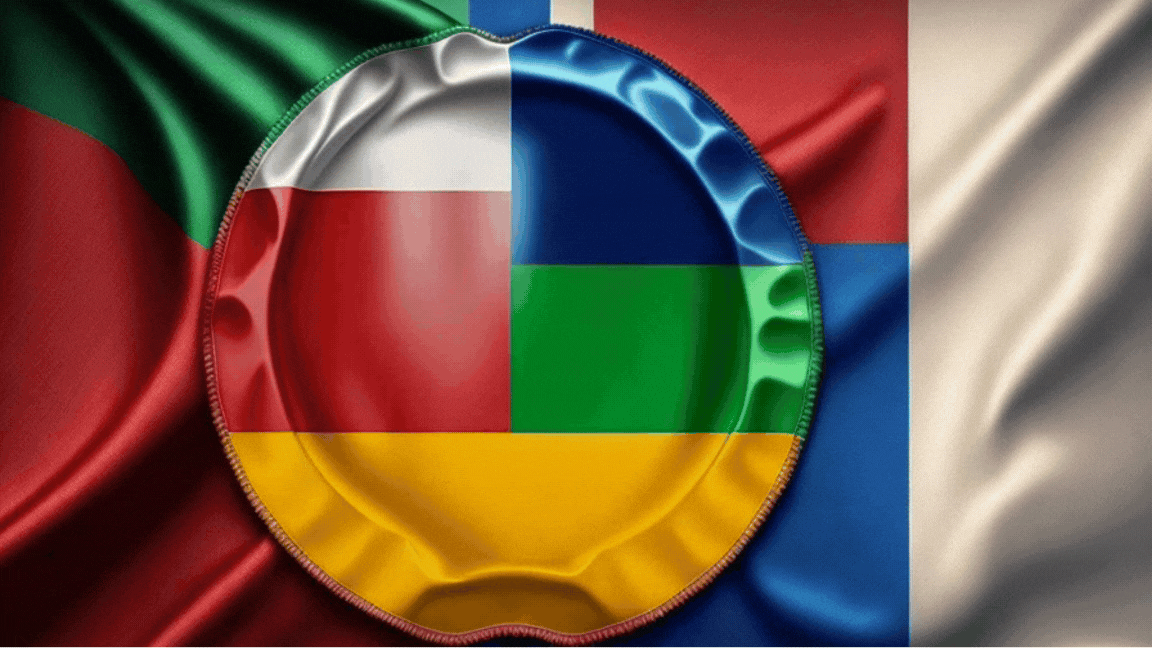
In one of Donald Trump's rare moves, his special envoy Richard Grenell met in Caracas with Venezuelan President Nicolas Maduro and secured the return of six US citizens who had been detained in the oil-rich nation during the rarefied post-election context. Although the White House and Foggy Bottom present the Americans´ return as an imposition on Miraflores, and particularly as the result of a secret threat conveyed by Grenell to the hard-nosed leader with the pronounced mustache, there is a tangible recognition here of who is in control in Venezuela. The Trump administration presents itself as tough and never conceding, but the Colombian case taught us early on that it does negotiate and concedes. Elliott Abrams, the obscure former Republican official who was an important part of failed efforts to oust Maduro in 2019, said the timing of Grenell's visit was “terrible”. “A meeting with Maduro will be used by him to legitimize his rule and show that the Americans recognize him as president. If the purpose is to deliver a tough message about migration issues, the president could've done that himself. There was no need to send someone to Caracas.”
 Source
SourceObjectively speaking, he is right, and it is enough to see the smiling look of the powerful head of the Venezuelan Congress Jorge Rodriguez as Maduro shakes hands with Grenell, in a photo that is exquisite material for all scholars of political aesthetics. It remains to be seen whether the Bolivarian government will move beyond this release of U.S. prisoners—mere bargaining chips that Maduro always cleverly keeps in his pocket—and accept the arrival at Maiquetia of deportation flights like those Washington dispatches daily to countries such as Mexico, Guatemala, and Colombia. In this sense, Venezuelan individuals allegedly linked to the notorious criminal organization known as the “Tren de Aragua” are listed as a top concern for the Oval Office. When asked on the West Wing whether Grenell's visit to Venezuela was a recognition of the disputed inauguration of Hugo Chávez's political heir, Trump said no, and claimed that he has always been “a very big opponent” of Maduro. “They've treated us not so good, but they've treated, more importantly, the Venezuelan people, very badly,” he added.
#AHORA | Trump sobre Venezuela:
January 31, 2025— Orlando Avendaño (@OrlvndoA)
“Vamos a ver qué hacemos para que la gente regrese a su país y sea libre. Apoyamos a los venezolanos. Estamos con los venezolanos. Me sorprendió ver a Biden comprando petróleo de Maduro. Nosotros casi acabamos con Maduro y Biden lo resucitó”. pic.twitter.com/G5oBSxzQXL
But if we know the 47th president we can assert that this is not as aggressive or direct a rhetoric as he usually deploys. “I have seen three U.S. presidents pass before me,” said the Venezuelan bus driver turned president. “This is the fourth term, and our message has been one: We want to build relationships of respect for Venezuela's sovereignty, for Venezuela's democratic life, for international law and our Latin American region [...] There are things where we've reached initial deals and when they are complied with, new issues will open, [and] hopefully new deals for the good of the two countries and the region,” he also stressed. So Maduro knows he owns a critical oil hub in times of great stress in the markets. That´s why the Biden administration did not punish him reinforcing sanctions despite the rational, global rejection of his inauguration. There is no evidence backing his victory in the elections of last July 28. Instead, there is quite solid evidence pointing to his potential defeat at the hands of Edmundo Gonzalez, the anodyne ad hoc opposition candidate cowardly exiled in Spain.
Trump, who is weighing whether or not to exclude oil from the 25%-projected tariffs against Mexico and Canada, may be silently looking favorably at maintaining the status quo with Caracas in this scenario, even if his narrative expresses otherwise. Or if we take the latter as true, it could be simply a kind of secret deal in exchange for accepting deportation flights. Companies dealing with Venezuelan state-owned PDVSA, including U.S. Chevron, Spain's Repsol, and Italy's Eni, have specific licenses to do so issued by the Treasury Department. Chevron is currently negotiating the continuation of this practice, as Marco Rubio was certainly quite negative about it during his confirmation hearing in the Senate Foreign Relations Committee, his former home on Capitol Hill. In any case, the position of Pennsylvania Avenue towards Venezuela contrasts sharply with the one historically adopted against Cuba, reinforced yesterday, Friday, by Rubio himself. The island is abandoned to its fate with nothing substantial to put on the negotiating table, a victim of its irreverence before the designs and whims of the powerful neighbor to the north.
The Trump Administration is restoring a tough Cuba policy that protects America and helps the Cuban people. We've maintained Cuba on the State Sponsors of Terrorism list – where it belongs – and taken other steps. The Cuban regime's oppression of its people and malign actions…
January 31, 2025— Secretary Marco Rubio (@SecRubio)
We need a break from these events 😥
Plane which crashed in Philadelphia was carrying 6 Mexican nationals, according to Mexico's Foreign Ministry pic.twitter.com/nBSmesI645
February 1, 2025— BNO News Live (@BNODesk)
And this is all for our report today. I have referenced the sources dynamically in the text, and remember you can learn how and where to follow the LATAM trail news by reading my work here. Have a nice day.


Posted Using INLEO